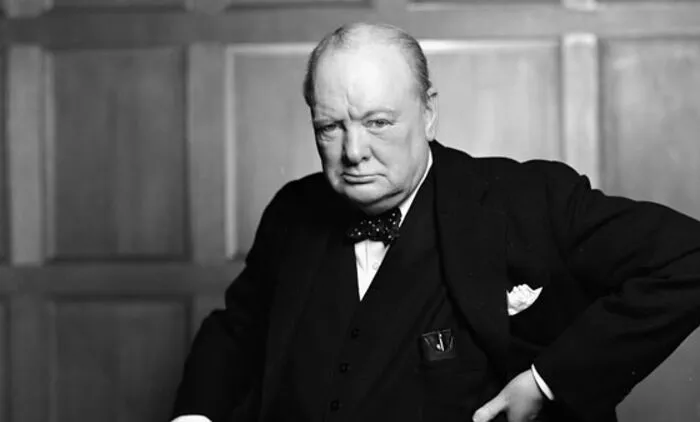November 30 has witnessed numerous significant events throughout British history, spanning politics, culture, and social change. This article will explore these events in detail, providing a comprehensive overview of what occurred on this day across different years.
What Happened on November 30 in British History?
The Birth of Winston Churchill (1874)
One of the most notable figures in British history, Winston Churchill, was born on November 30, 1874. Churchill served as Prime Minister during World War II and is renowned for his leadership during one of Britain’s most challenging periods. His speeches and radio broadcasts helped inspire British resistance against Nazi Germany.Churchill was born into an aristocratic family; his father was Lord Randolph Churchill, a prominent Conservative politician. He attended the Royal Military Academy Sandhurst and began his career as an officer in the British Army. His early experiences as a war correspondent in Cuba and South Africa shaped his views on military strategy and politics.Churchill’s political career spanned over five decades, during which he held various positions, including First Lord of the Admiralty and Chancellor of the Exchequer. His tenure as Prime Minister from 1940 to 1945 is particularly celebrated for his unyielding resolve against fascism. He famously declared, “We shall fight on the beaches,” emphasizing his commitment to victory despite overwhelming odds.
The Treaty of Paris (1782)
On November 30, 1782, Britain signed preliminary articles recognizing the independence of the United States as part of the Treaty of Paris negotiations. This treaty formally ended the American Revolutionary War and marked a significant turning point in British colonial policy.The negotiations took place in Paris, where representatives from Britain and the United States discussed terms following years of conflict. The agreement acknowledged American sovereignty and established borders for the new nation. This event was crucial not only for American history but also for Britain’s subsequent approach to its remaining colonies.The Treaty of Paris was ratified in 1783, leading to a shift in power dynamics globally. Britain learned valuable lessons about colonial governance and military engagement that would influence its policies in other territories.
The First International Football Match (1872)
Another significant event that took place on November 30 was the first international football match between England and Scotland in 1872. Held at the West of Scotland Cricket Club in Partick, Glasgow, the match ended in a 0-0 draw.This match marked the beginning of international football competitions and laid the groundwork for what would become one of the world’s most popular sports. The game attracted considerable attention, with approximately 4,000 spectators in attendance.The significance of this match extends beyond mere sporting achievement; it fostered a sense of national identity and pride among both English and Scottish fans. Over time, football evolved into a cultural phenomenon in Britain, contributing to social cohesion and community spirit.
The Fire at Crystal Palace (1936)
On November 30, 1936, Crystal Palace, one of London’s most iconic landmarks, was destroyed by fire. Originally built for the Great Exhibition of 1851, this massive glass structure symbolized Victorian innovation and architectural prowess.The fire broke out late at night and quickly engulfed the building due to its wooden framework and glass panels. Despite efforts by firefighters to contain the blaze, the structure was ultimately lost. The incident shocked Londoners and marked the end of an era for one of their beloved attractions.In its prime, Crystal Palace hosted numerous exhibitions, concerts, and sporting events. Its destruction prompted discussions about fire safety regulations for large public buildings in London.
The House of Lords Rejects Lloyd George’s ‘People’s Budget’ (1909)
In a significant political event on November 30, 1909, the House of Lords rejected David Lloyd George’s ‘People’s Budget.’ This budget aimed to redistribute wealth through higher taxes on the rich to fund social welfare programs.The rejection by the unelected House of Lords led to a constitutional crisis that ultimately resulted in the Parliament Act of 1911. This act limited the power of the House of Lords to veto financial legislation passed by the House of Commons.Lloyd George’s budget was pivotal because it reflected changing attitudes towards taxation and social responsibility in early 20th-century Britain. It laid the groundwork for future welfare reforms and highlighted tensions between different branches of government.
The Start of Civil War in Palestine (1947)
On November 30, 1947, civil war broke out in Palestine following a United Nations resolution proposing partitioning Palestine into separate Jewish and Arab states. This decision led to violent clashes between Jewish and Arab communities.The conflict escalated quickly after two buses carrying Israeli passengers were attacked by Arab gunmen on this day. The violence marked the beginning of a prolonged period of conflict that would eventually lead to Israel’s declaration of independence in May 1948.This event is significant not only for its immediate consequences but also for its long-term impact on Middle Eastern geopolitics. The ongoing Israeli-Palestinian conflict has roots in these early tensions.
Conclusion
November 30 has been a day marked by critical events that have shaped British history across various domains—politics, sports, architecture, and international relations. From Winston Churchill’s birth to significant political developments like the Treaty of Paris and Lloyd George’s budget rejection, each event reflects broader societal changes within Britain.These historical moments serve as reminders of how past decisions continue to influence contemporary issues within British society and beyond. As we reflect on these events each year on November 30, we gain insight into our shared history and its ongoing legacy.
Related Topics:

